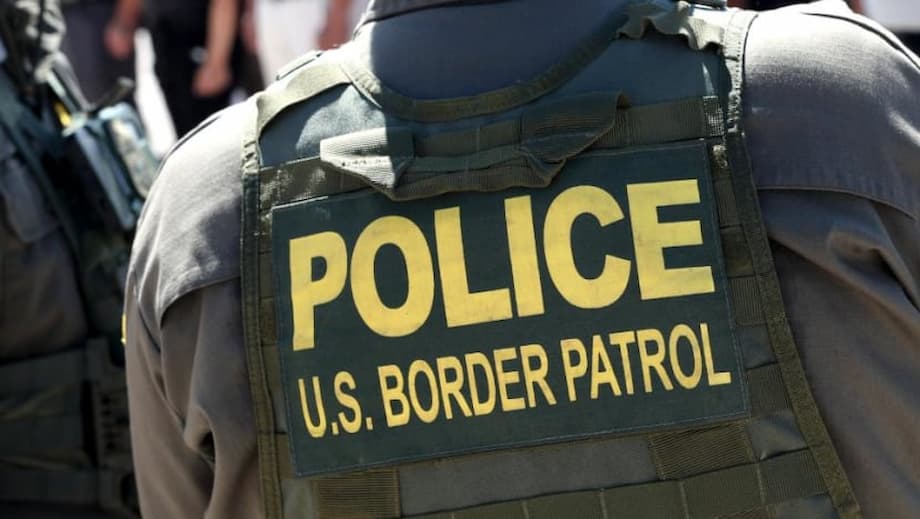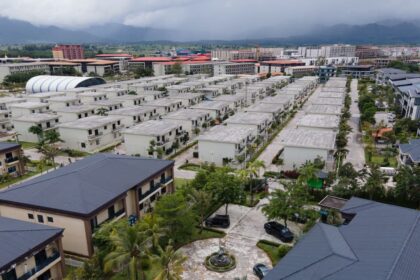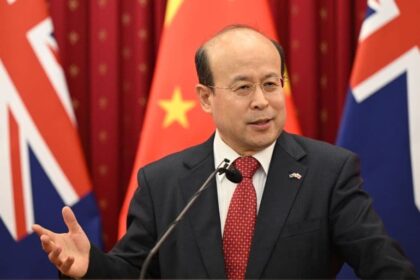Chinese Students at US Borders: Rising Detentions, Interrogations, and Visa Revocations
In recent years, Chinese students and scholars traveling to the United States have faced an increasingly hostile environment at US borders, with reports of prolonged detentions, aggressive interrogations, and abrupt visa revocations. These incidents have sparked diplomatic tensions between Beijing and Washington, disrupted academic careers, and cast a shadow over the longstanding tradition of educational exchange between the world’s two largest economies.
- Chinese Students at US Borders: Rising Detentions, Interrogations, and Visa Revocations
- What Is Happening at US Borders?
- Why Are Chinese Students Being Targeted?
- Diplomatic Tensions and China’s Response
- Personal Stories: The Human Cost of Detention and Deportation
- Academic Community and Legal Challenges
- Migration Trends: Beyond Student Visas
- In Summary
Beijing has repeatedly criticized the United States for what it describes as discriminatory and politically motivated actions against Chinese students. According to Mao Ning, a spokeswoman for the Chinese foreign ministry, Chinese citizens have been subjected to prolonged interrogations in small, dark rooms, sometimes lasting over 70 hours, with some students questioned about topics unrelated to their stated purpose of travel. In many cases, visas have been canceled and entry denied on national security grounds, even for students holding valid documentation.
What Is Happening at US Borders?
Accounts from students, academics, and legal experts reveal a pattern of intensified scrutiny at US ports of entry. Chinese students, even those with valid visas and acceptance letters from prestigious universities, report being stopped at airports, interrogated about their research, and having their electronic devices searched. In some cases, students have been detained for days, deported, and barred from re-entering the US for up to five years.
One Yale graduate student, midway through her PhD, was sent back from Washington’s Dulles airport and banned for five years, despite having an apartment and ongoing experiments in the US. Another scientist, arriving to take up a postdoctoral position at Harvard Medical School, was turned away at Boston Logan International Airport after being grilled about his master’s studies in China and whether his research had any connection to the Chinese military.
These experiences are not isolated. The Chinese embassy in Washington reported that more than 70 students with valid documents had been deported since July 2021, with over 10 cases since November 2023. The US Customs and Border Protection (CBP) agency, however, does not provide detailed statistics about refusals at airports, making the true scale difficult to verify.
While the number of affected students is a small fraction of the nearly 300,000 Chinese student visas issued in the year to September 2023, the personal toll is significant. The impact extends beyond individuals, stalling experiments, disrupting academic collaborations, and chilling the next generation of Chinese scientists and engineers.
Device Searches and Legal Ambiguity
US border agents have broad authority to search electronic devices without a warrant under the so-called “border search exception” to the Fourth Amendment. This power, traditionally used for travelers from countries with strict visa requirements, is now being applied more widely, including to citizens from allied nations and, notably, to Chinese students and scholars.
Legal experts warn that refusing a device search can result in visa revocation and denial of entry. The lack of nationwide consistency—only New York’s JFK Airport currently bans warrantless phone searches due to a federal court ruling—adds to the uncertainty and anxiety for international students.
Some travelers, aware of these risks, have begun using burner phones or cloud storage to protect their data, while universities advise students to avoid sensitive topics online and to prepare for sudden visa revocation.
Why Are Chinese Students Being Targeted?
The heightened scrutiny of Chinese students is rooted in a complex mix of national security concerns, geopolitical rivalry, and domestic politics. Since 2020, a US rule has barred Chinese postgraduate students with links to China’s military-civil fusion strategy—a policy that encourages civilian universities to support military development. The Australian Strategic Policy Institute estimates that 95 civilian universities in China have ties to the defense sector, making it difficult for US officials to distinguish between purely academic and potentially sensitive research.
In 2021 alone, nearly 2,000 Chinese students in STEM (science, technology, engineering, and mathematics) fields were denied visas on these grounds. However, the scope of scrutiny has since widened to include medical sciences and other disciplines, with reasons for refusals often left vague or unexplained.
US officials, including Secretary of State Marco Rubio, have vowed to enhance vetting of applications from mainland China and Hong Kong, particularly for students with connections to the Chinese Communist Party or those studying in critical fields such as artificial intelligence. The Trump administration’s policies have further limited visa durations for Chinese students in high-tech fields, reducing them from five years to one year in some cases.
Political and Academic Fallout
The crackdown on Chinese students is part of a broader US policy agenda aimed at reducing both legal and undocumented immigration and addressing perceived threats from foreign influence on campuses. The administration has cited national security and concerns about espionage as justifications for these measures, but critics argue that the actions are politically motivated and discriminatory.
Chinese students, who have long sought US education for its prestige and opportunities, now face uncertainty about their futures. Many report feeling anxious, defensive, and pessimistic, unsure how to navigate the new environment. Some are considering studying in other countries with clearer rules, while others fear leaving the US for fear of being denied reentry.
Universities, caught in the crossfire, have scrambled to support affected students, providing legal resources and academic accommodations. Some institutions have advised students to avoid protests or certain online posts to protect their visas, while others have called on the government to allow deported or detained students to continue their programs remotely.
Diplomatic Tensions and China’s Response
Beijing has lodged formal complaints after each reported incident, urging the US to investigate and correct its actions. Chinese officials accuse the US of politicizing and weaponizing academic research, abusing national security to suppress Chinese students, and undermining the atmosphere for people-to-people and cultural exchanges.
China’s foreign ministry has highlighted the broader implications for bilateral relations, warning that such actions obstruct normal exchanges and damage the foundation of scientific and educational cooperation. The US-China Science and Technology Agreement, a landmark treaty signed in 1979, has faced uncertainty, with renewals now occurring in six-month increments rather than the usual five-year terms.
The diplomatic standoff is compounded by mutual suspicion. The US government warns its citizens traveling to China of the risk of arbitrary enforcement of local laws, including exit bans and detention, especially for dual nationals. Meanwhile, Chinese students in the US worry about surveillance and pressure from both governments, leading to a pervasive sense of vulnerability.
Personal Stories: The Human Cost of Detention and Deportation
Behind the statistics are deeply personal stories of disruption, fear, and loss. Students recount being held in windowless rooms for hours or days, interrogated about their research, political beliefs, or social media activity. Some have had their dreams of a US education abruptly cut short, while others live in constant fear of losing their legal status.
Kiwi Zhang, a computer science student, had his US visa revoked at the border after returning from a conference. He was accused of sharing research with the Chinese government—a charge he denies—and deported, barred from the US for five years. Joyce, a student accepted to Harvard, is afraid to leave the US for fear of being denied reentry. David Yang, a PhD candidate, reports stress and loss of motivation, unsure if he can complete his studies.
In one tragic case, a 52-year-old Chinese woman detained at the Yuma Border Patrol station in Arizona died by suicide after overstaying her visa. Initial reports suggest that border patrol agents failed to perform required welfare checks, raising serious concerns about the conditions in detention facilities and the adequacy of oversight.
Representative Pramila Jayapal, a key member of the House subcommittee overseeing immigration, stated, “There is no excuse for why agents cannot verify if some of the necessary welfare checks occurred or why some of the documented welfare checks were incorrectly reported.”
Such incidents underscore the human cost of the current crackdown and the urgent need for reforms to ensure the dignity and safety of all detained individuals.
Academic Community and Legal Challenges
The academic and research community in the US has reacted with alarm to the wave of visa revocations and detentions. Graduate students, postdoctoral researchers, and laboratory leaders are contacting lawyers, filing lawsuits, and urging universities to provide support for affected students. The American Civil Liberties Union (ACLU) and other advocacy groups argue that the government’s actions violate due process and chill free speech on campuses.
Some students have obtained temporary restraining orders to prevent deportation, while universities have called for remote learning options and continued stipends for those unable to remain in the country. Faculty members warn that the crackdown threatens the US’s ability to attract top international talent and undermines the country’s reputation for openness and academic freedom.
Immigration lawyers note that visa-holding students have the same First Amendment rights as US citizens, but the temporary nature of their visas makes them vulnerable to sudden changes in legal status. The lack of clear explanations for visa revocations, often based on minor infractions or political activity, has left students and universities scrambling for answers.
Broader Implications for US Higher Education
The United States has long been the top destination for international students, with over 1.1 million student visa-holders as of 2024. Chinese students make up the largest group, contributing billions of dollars to the US economy and enriching academic life on campuses nationwide. The recent crackdown, however, has led to a decline in Chinese student enrollment, with many now considering alternatives in Europe, Canada, Australia, or Hong Kong.
Education consultants report increased interest in non-US options, citing safety concerns and doubts about being welcome. Experts lament the loss of an era when US-educated Chinese professionals contributed to China’s development and admired America’s openness. The current environment, marked by suspicion and uncertainty, threatens to erode decades of progress in international education and scientific collaboration.
Migration Trends: Beyond Student Visas
As traditional visa routes become less accessible, a growing number of Chinese nationals are seeking entry to the US via the southern border, often through dangerous routes like the Darién Gap in Panama. In 2023, US Border Patrol arrested over 22,000 Chinese nationals at the southern border, many of whom claimed asylum upon arrival. Economic instability, political repression, and restrictive policies in China are driving this trend, with migrants relying on social media for information and support.
While the approval rate for Chinese asylum applications remains high, integration challenges persist, including language barriers and mixed reception from established Chinese American communities. Policy experts recommend expanding access to regular visa pathways, improving language resources for border officials, and strengthening partnerships with community organizations to support integration.
In Summary
- Chinese students and scholars face increasing detentions, interrogations, and visa revocations at US borders, often without clear explanation.
- US policies cite national security and concerns about espionage, particularly in STEM fields, but critics argue the actions are discriminatory and politically motivated.
- Beijing has lodged formal complaints, warning that the crackdown undermines educational and scientific cooperation between the two countries.
- Personal stories reveal the human cost of detention and deportation, including disrupted academic careers and, in one case, a tragic suicide in custody.
- The academic community is pushing back with legal challenges and support for affected students, warning of long-term damage to US higher education and international collaboration.
- Some Chinese nationals are now seeking entry to the US via asylum routes, reflecting broader migration trends driven by political and economic factors.
- The future of US-China educational exchange remains uncertain, with both sides grappling with mutual suspicion and the erosion of trust.












